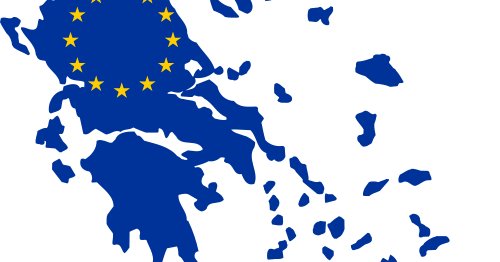As the EU prepares a second bailout plan (after the €110 billion of May 2009), new voices in favour of a Greek default have risen. The German Finance Minister, Mr. Schäuble, has most notably argued in favour of a “necessary burden-sharing between taxpayers and investors” (eurovoice.com), and so has the President of the Eurogroup (Reunion of Eurozone finance ministers), Mr. Jean-Claude Junker. On the other hand, the actual and future Presidents of the ECB, Mr. Jean-Claude Trichet and Mr. Mario Draghi, are both fiercely against a Greek default, arguing that the costs of such an option would far outweigh the benefits. Indeed, the soundness of Greek banks could be strongly affected, financial instability could propagate across Europe, European stock markets could suffer important losses, and investors might probably ask ever-higher yields. Hence, in their view a new bailout plan is unavoidable.
Default is the only realistic option
Nonetheless, the current situation is clearly unsustainable, so something has to give in: (1) leaving the Eurozone and devaluating to restore competitiveness, (2) enacting radical reforms of the Greek State (it did not work), (3) or restructuring the Greek debt. The last option is the only realistic one, because Greece leaving the Eurozone could potentially trigger the collapse of the Economic and Monetary Union (EMU). It is partly false to say that a Greek default would provoke a disastrous contagion to the other “PIGS” countries through the loss of investor confidence: after a default, Greece will be solvent, so the same investors who ask high yields today will run to buy Greek bonds tomorrow. The 2008 financial crisis demonstrated well how rapidly financial markets can change their minds from fear to over-confidence in a very short lapse of time. The main reason why Greek yields remained so high for so long is because of the slow reactivity of EU countries.
The major problem here is that the main investors in Greek debt are French and German banks. This explains the hesitations in Paris and Berlin when dealing with the Greek debt. Here, it appears that France and Germany will have to pay anyhow: whether to bailout Greece or to bailout their banks. Hence, an orderly restructuring of the Greek debt is the only credible solution on the long term, no matter how painful the short term consequences are.
A default will strongly help the Greek economy and Europe as a whole
Several European leaders have used the argument of European solidarity to support the Greek bailout. However, not letting Greece default means forcing Greeks to work hard to continue paying a skyrocketing debt, with ever-higher interest rates, which they are not even sure to pay back. There, Greek demonstrations against the power of money might not seem so ideological, but very realistic. Politically, burden sharing between Greek workers and investors is the only way to sweeten the bitterness of the reforms Greece deeply needs. Leaving Greece default is not a lack of European solidarity; on the contrary, it is helping the Greeks out of this economic disaster. Everyone needs to assume their responsibilities: investors who bought Greek debt sought high return (hence taking high risk), so governments have to show the financial world that high risk doesn’t only mean high return, but can also entail losses when things go wrong, which is the case here. On the other hand, the Greeks will have to face a period of austerity, to find their path to economic growth, and because they have to bear the costs of the absolute irresponsibility of their previous Government.
A broader question today is: how to avoid such dramatic situations in the future? The solution of a “European Finance Ministry” proposed by Jean-Claude Trichet recently is excellent as it solves the EMU’s main problem: the lack of economic governance. Pooling together the financial sovereignty of Member States is the logical next step after EMU. Furthermore, a “European Finance Ministry” would have a greater ability to constrain Governments in their budgetary policies, increasing the overall soundness of the system, but without however forcing all countries to adopt “German-type” rigidity. The Greek crisis is also a tremendous opportunity for Europe to build up the necessary economic governance it currently lacks; it must not let it go.

1. On 21 June 2011 at 16:55, by Papaphilippos Replying to: Rescuing Greece: Act 2
Replying to: Rescuing Greece: Act 2
Congratulation for the article. Somebody has clearly to pay for the mess. Responsibilities are spread between negligent people and those who closed their eyes, therefore, the bill should not be presented only to a third party now. And lessons must be drawn for the future obviously. “Remember the golden rule: who has the gold makes the rule”. Those paying for the crisis have to set the rules for a decent future for all Europeans. All the best. Papaphilippos
2. On 7 July 2011 at 13:18, by Juanito vdw Replying to: Rescuing Greece: Act 2
Replying to: Rescuing Greece: Act 2
I like the article, it’s clear and touches upon many issues. However, I feel that the last part at least is highly idealistic. If the aim were to become the USE, then maybe this could work, but clearly this is not likely to happen. It took the member states over two decades to negotiate for the EEAS, is it conceivable that one day their finances will be pooled by an EFM? Would this then mean that the UK has to make choices? Exciting! It’s a nice idea though.
Follow the comments: |
|
